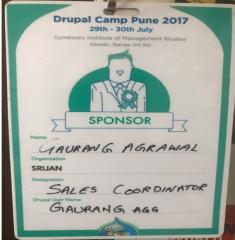Submitted by GAURANGAGG on Sat, 05/20/2017 - 12:12
What differentiates the winner ( stock )?
Great, scalable, highly profitable business run by a great team of managers.
“Roller coaster journey of stocks are barely visible if you look at the 45-10-15 years chart as every massive decline represent a minuscule part of the chart.
For investors who bought those kind of stocks like Wabco 5 years ago and have held it till now, those major declines didn’t matter. And for people who understands the long term wealth creation, such sudden declines are a wonderful opportunity to average up - which is contrary to the wisdom of many.
identifying the great businesses where the valuation is not crazy expensive relative to its long term potential earning power, then don’t sell after massive sudden drop ( let’s say 50% or more). Buy more of it that time.
In the book “Common Stocks and Uncommon Profits”, he wrote:
If the investment is in a well run company with sufficient financial strength, even the greatest bear market will not erase the value of holding. Unusual stocks have subsequent peaks many times the previous peaks. Therefore risk and reward considerations favour long term investment - holding.
Identifying and staying with the right stocks through even a major temporary market drop, you are at most going to be temporarily behind 40 percent of the former peak at the very worst point and will ultimately be ahead but if you would have sold the right stocks to prevent short term temporary losses, and you don’t buy them back you will eventually lose long term profits.
Either you will sell too soon and you would have postponed reinvestment too long to recapture the profits possible ( a situation which prevents you from holding multi-baggers ).
“There is more to learn from the Texas Instruments and Central California Electronics situations. When I originally acquired these Texas Instruments shares in the summer of 1955, they were bought for the longest type of long-range investment. It seemed to me that the company fully warranted this degree of confidence. About a year later, the stock had doubled. With one exception, the various owners of the funds I managed, familiar as they were with my method of operations, showed no more interest in taking a profit than did I. However, at that time I had one relatively new account owned by people who, in their own business, were used to building tip inventory when markets were low and cutting it back sharply when they were high. Now that Texas Instruments had doubled, they brought strong pressure to sell, which for a time I was able to resist. When the stock rose an additional 25 percent to give them a profit of 125 percent of their cost, the pressure to sell became even stronger. They explained, "We agree with you. We like the company, but we can always buy it back at a better price on a decline." I finally compromised with them by persuading them to keep part of their holding and sell the rest. Yet when the big drop occurred several years later and the shares fell 80 percent from their peak, this new bottom was still almost 40 percent higher than the price at which this particular holder was so eager to sell!
After a very sharp advance, a stock nearly always looks too high to the financially untrained. This client demonstrated another risk to those who follow the practice of selling shares that still have unusual growth prospects simply because they have realized a good gain and the stock appears temporarily overpriced. These investors seldom buy back at higher prices when they are wrong and lose further gains of dramatic proportions.
At the risk of being repetitious, let me underscore my belief that the short-term price movements are so inherently tricky to predict that I do not believe it possible to play the in and out game and still make the enormous profits that have accrued again and again to the truly long-term holder of the right stocks.”
Own the fantastic business for long time. Be prepare for the roller coster ride. The ride will be worth it if you have chosen a fundamentally solid business.
Big money is in buying ( at reasonable valuation ) and holding great businesses.
Owning such businesses will produce gut-wrenching roller coaster rides ( happens in all businesses but pays off in great businesses - they are tiny blips on a chart ) - which the investor has to take. You can’t just successfully jump in and out without getting harmed. So stay invested.
Inspired by the PDF ( largely taken ) written by Sanjay Bakshi.









Add new comment